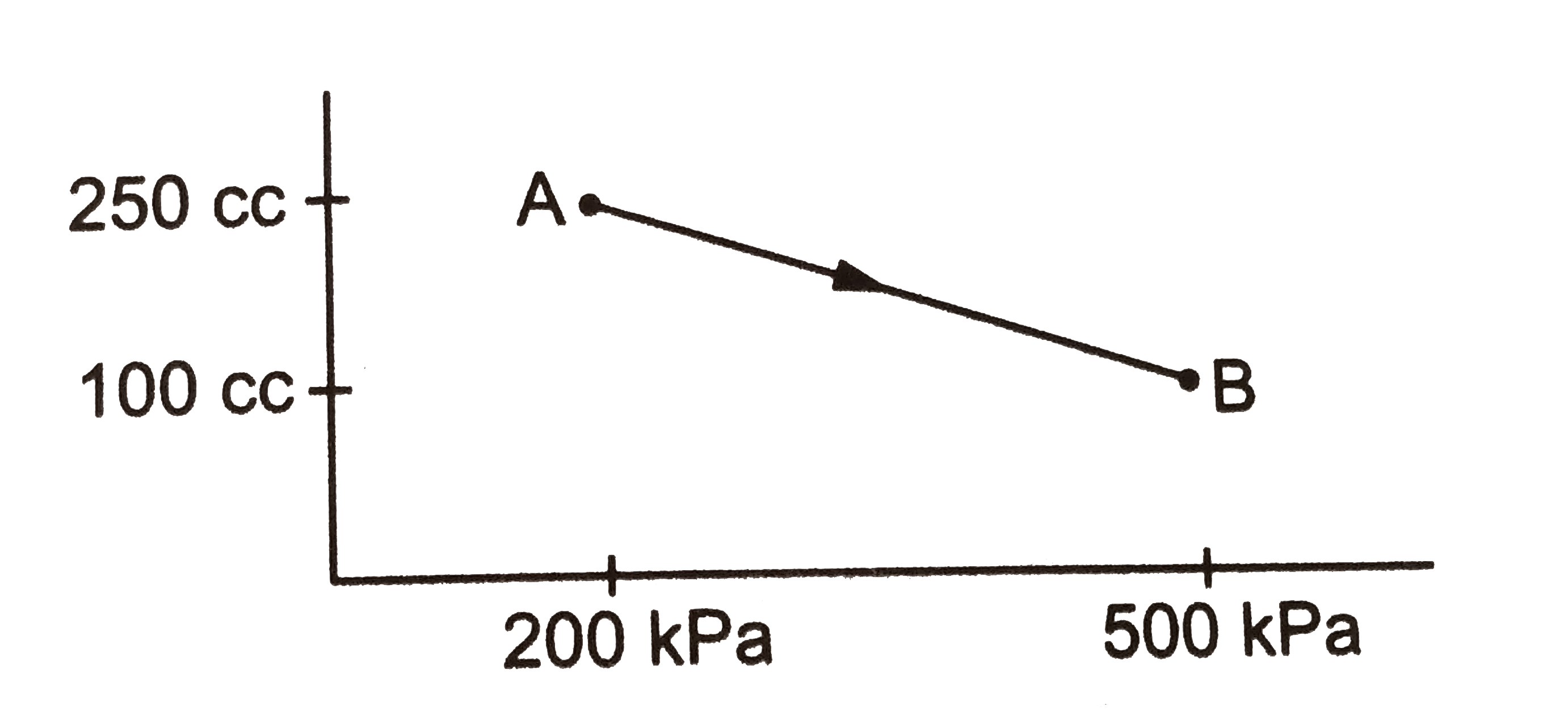In which of the following process (es), there is no change in the internal energy of the system?
A
Isothermal
B
Adiabatic
C
Free expansion
D
Cyclic
Video Solution
Text Solution
The correct Answer is:A, C, D
In isothermal process, heat supplied is used to do work against external surroundings, in free expansion as P=0, so change in internal energy is zero, and cyclic process, system is returened to its initial state ∴ΔU=0
|
Topper's Solved these Questions
- THERMODYNAMICSBOOK - PRADEEPCHAPTER - THERMODYNAMICSEXERCISE - Interger Type questions
11 Videos
- THERMODYNAMICSBOOK - PRADEEPCHAPTER - THERMODYNAMICSEXERCISE - Assertion- Reason Type Questions
19 Videos
- THERMODYNAMICSBOOK - PRADEEPCHAPTER - THERMODYNAMICSEXERCISE - Multiple choice questions (NCERT)
10 Videos
- SYSTEMS OF PARTICLES AND ROTATIONAL MOTIONBOOK - PRADEEPCHAPTER - SYSTEMS OF PARTICLES AND ROTATIONAL MOTIONEXERCISE - Assertion- Reason Type questions
20 Videos
- WORK, ENERGY AND POWERBOOK - PRADEEPCHAPTER - WORK, ENERGY AND POWEREXERCISE - Assertion-Reason Type Questions
24 Videos
Similar Questions
Knowledge Check
The work done in which of the following processes is equal to the internal energy of the system ?
AAdiabatic processBIsothermal processCIsochoric processDNone of the aboveThe work done in which of the following processes is equal to the internal energy of the system ?
AAdiabatic processBIsothermal processCIsochoric processDNone of the aboveWhich of the following process has no change in the internal energy ?
AIsobaricBIsothermalCAdiabaticDIsochoric
Which of the following process(es) can given sulphur ?
View SolutionWhich of the following has no change in the internal energy?
View SolutionWhich is true for Internal energy of system is ?
View SolutionWhich of the following process (es) release CO2 n atmosphere ?
View SolutionIn which of following processes, do(es) the value of magnetic moment change?
View Solution

